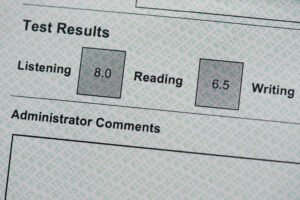It is a powerful signal when a university president is willing to take the time to answer questions about a new role. Therefore, I’m delighted that Tanuja Singh, president of the University of Indianapolis, agreed to answer my questions about the recent establishment of UIndy Online and the search for a founding dean to lead this new enterprise.
Q: What is the University’s mandate behind this role? How does it help align with and advance the university’s strategic priorities?
A: Research clearly shows that learning is no longer linear, nor is it once and done. Multiple reports, including the World Economic Forum’s “Future of Jobs” report and the recent report from Georgetown University on the future of good jobs, note that higher education will become more, not less, important as more and more jobs require higher-order thinking and problem-solving skills. The majority of jobs will require a postsecondary education, and the majority of good jobs will require at least a bachelor’s degree. And, even those with existing good jobs will require upskilling and reskilling because skills instability is becoming the norm, not the exception.
Most Popular
In essence, there is a growing demand for lifelong learning, which may not necessarily conform to our view of learning as a strictly linear and defined path where you sit in a physical classroom/lab for four years to get a bachelor’s degree and similarly for a master’s degree. At the University of Indianapolis, our mission statement, which we recently changed, captures the essence of this new thinking.
There are qualified people who started a degree program and never finished but are unable to get educational institutions to transfer their credits or credentials. There are people wanting to reskill and upskill, there are people who may or may not want a traditional degree. There are people who want to earn microcredentials and get stackable certificates that they can use towards a degree (or not). Organizations I work with want to train their current employees whose jobs are going to change drastically. And this group of learners requires learning to be accessible, flexible and available—anytime, anywhere, for life.
So, this division—UIndy Online and Sease Institute—is targeting what we call the post-traditional learners, those who may want to change their careers or recharge their careers. The role requires an understanding of the marketplace, the strategy and the trends to appropriately respond to the needs of this group of learners. The dean has to understand the strategic imperative of why this is important, as well as the operational infrastructure that will be required to deliver the promise. UIndy Online and Sease Institute are an integral part of our strategic priorities. In fact, this founding dean position was created as part of our new strategic plan.
Q: Where does the role sit within the university structure? How will the person in this role engage with other units and leaders across campus?
A: It is a dean position at par with academic deans. The individual will report to our executive VP and provost, sit on the Provost’s Council, and work closely with him and me to align the vision with the priorities. It will require consistent and collaborative interaction and partnership with leadership across the university. They will be a significant voice in academic and nonacademic programming to serve the post-traditional market. I expect the dean to work with our external stakeholders (corporate, government and educational institutions), who are very eager to partner with us for skill development for their teams.
Q: What would success look like in one year? Three years? Beyond?
A: I would expect the division to be fully integrated with our academic footprint including having its own P&L responsibilities. The division should contribute significantly to the university’s financial growth. I also expect it to be a significant driver of future strategy and corresponding revenues, as well as our brand. If you look at our mission and vision statements, this vision of learning being relevant and lifelong will become an integral part of our identity, and UIndy Online and Sease Institute will be part of our overarching strategy to get there.
Q: What kinds of future roles would someone who took this position be prepared for?
A: This is clearly a role where strategic thinking and connecting with the external world plays an important part. And, as learning becomes more open-loop, continuous and skill-centered, I believe the person will have numerous opportunities to move to even more senior leadership roles, including VP of strategy, provost as the next step.
Original Post: Read More
Source: Inside Higher Ed



